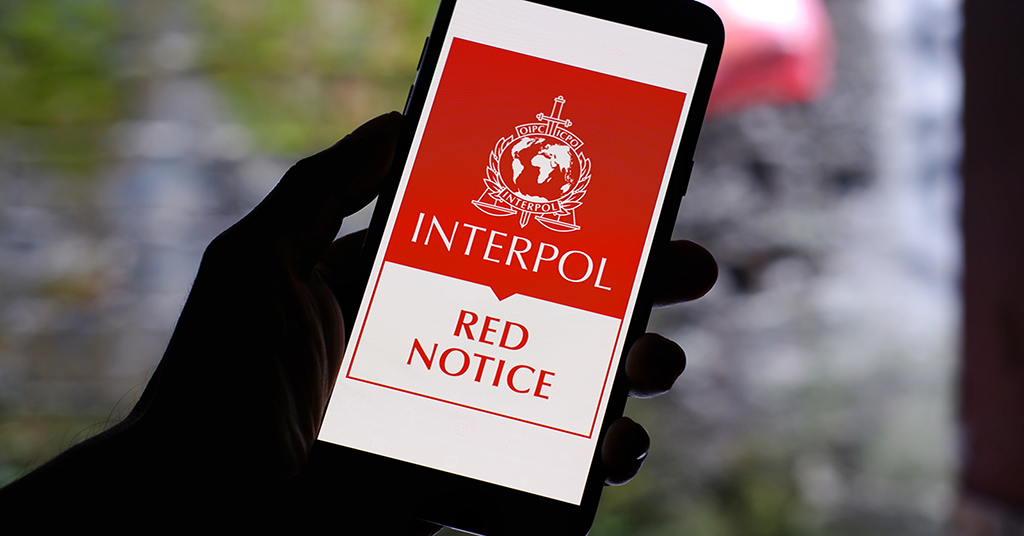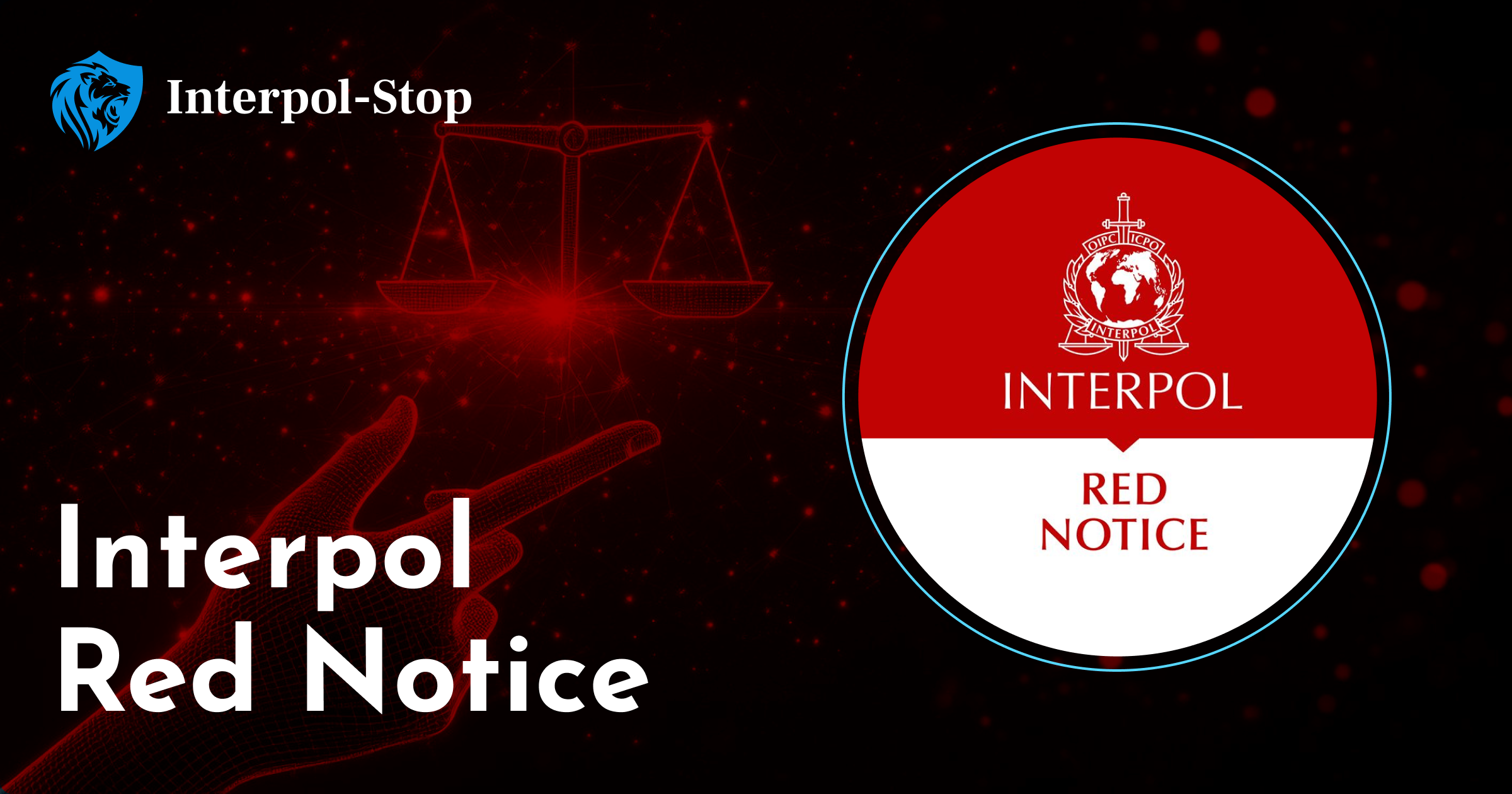The International Criminal Police, abbreviated as Interpol, actively combats international crime, the organization includes more than 196 member countries. Interpol uses many notices to warn partner countries about possible danger from offenders. The Interpol Red Notice is the most effective and popular tool for searching and catching an offender. If you are in London and have received a red notice, you should be wary, because the consequences of it bring a lot of inconvenience. Let’s consider the legal consequences of Interpol red notices in the UK, what this notice means and the possibility of its removal.

What Is an Interpol Red Notice?
An Interpol Red Notice is an official document to law enforcement agencies of partner countries for the purpose of identifying and detaining a wanted person. This notice provides legal grounds for law enforcement agencies to arrest a person and extradite them to the requesting country. The reason for issuing a notice is the presence of an accusation against a person of committing a criminal offense. The legality of a Red Notice is based on international cooperation and mutual respect for the laws of partner countries. Interpol does not act as a supranational law enforcement agency. It does not have the right to carry out arrests and investigations on its own. The main task of Interpol is to coordinate and exchange information between the police of other countries. In the context of international law, Red Notices operate within the framework of extradition agreements and bilateral treaties between countries.
Purpose and Function of Red Notices
The main objective of Red Notices is to assist in the identification, detention and extradition of a suspect or convicted person for serious crimes. This mechanism helps prevent evasion of justice by crossing international borders.
The functions of Red Notices include informing law enforcement agencies about a wanted person. The information includes his/her personal data, photograph, fingerprints and information about the alleged crime.
In addition, the notice strengthens international cooperation between law enforcement agencies allowing for a rapid response to security threats. This helps prevent further violations and apprehend dangerous criminals as soon as possible.
The Role of the National Central Bureau (NCB) in the UK
The UK has a National Central Bureau (NCB) of Interpol that carries out specific tasks. These tasks include centralizing efforts in decision-making, implementation and compliance with the full implementation of Interpol’s requirements for searches. This Bureau acts as a kind of communication bridge between Interpol and national authorities.
The NCB accepts and evaluates red notices. This notice must fully comply with the requirements of the law and with the UK’s third-party obligations. In addition, NCB officers are responsible for ensuring that the rights of the accused are respected.
The UK implements red notices if they do not violate national legislation and international agreements. Each country implements these notices at its own discretion.
How to Determine if You Are Subject to an Interpol Red Notice
If you suspect that you have a red notice from Interpol, check it yourself. You can visit the official Interpol website. This website does not publish all of them, but some notices are still published openly. Also, another part of the red notices remains inaccessible to the public due to the risk of disrupting the investigation.
If you are located in England and want to find out if there is a red notice against you, contact a law firm. A lawyer specializing in red notices in London will prepare a request to law enforcement agencies and, if necessary, advise you.
There is another way to check this information. You can prepare and send a request to Interpol by contacting the Commission for the Control of Files. This procedure is formal in nature and requires some time to receive official confirmation or refutation of your suspicions.
Also try to be interested in and observe the actions of the police. If they show increased interest in you or you have received an official request from them, you may be a carrier of a red notice.
Challenging a Red Notice in the UK
There are certain grounds on which a red notice can be challenged. These could be data errors, if the notice contains incorrect information, or if it was issued in error. Also, if your rights to a fair trial have been violated, this will help to challenge the notice. In addition, the likelihood of ill-treatment in the country requesting your extradition will serve as a legitimate argument to challenge their request.

If the requesting country is persecuting you for political, religious or racial reasons, provide these arguments and evidence. Interpol prohibits extradition in such situations. Extradition will also be rejected if the act you are accused of is not a crime in the UK – no double criminality.
However, to challenge an Interpol red notice, you cannot do without the help of a good lawyer. This process requires preparation and knowledge of international law and national legislation.
The Process of Requesting Removal or Modification
The procedure for removing or amending a Red Notice in the UK is a time-consuming and difficult legal process. First, collect documents supporting the grounds for appeal. This package should include court decisions, evidence of human rights violations and facts of political persecution.
Then prepare an appeal to the Commission for the Control of Interpol’s Files, detailing the reasons why the notice should be canceled or adjusted. Include references to articles of international law and legal precedents supporting your claims. Once ready, send this appeal with the documents to the Commission. You should also be prepared that this procedure can take a long time and additional clarifications.
To increase the likelihood of a positive outcome, it is recommended to work closely with an experienced lawyer. Contact a lawyer specializing in extradition cases. It is important that the lawyer has experience of interacting with Interpol cases and a deep knowledge of the British legal system in matters of international cooperation and human rights. After submitting the request, wait for the decision of the Commission, which will conduct an investigation and send you its official conclusion.
Why Choose Our Legal Team for Red Notice Matters?
If you or someone close to you has been affected by a red notice, do not delay in seeking legal assistance. Our international law firm has the knowledge to build an effective defense in the most difficult and unusual situations.
We guarantee accessibility – we are ready to provide answers and consultations whenever it is convenient for you. Confidentiality is our top priority – your requests and information will remain strictly between us.
Our experience in international law and extradition includes recent successful cases of cancellation of red notices. The issuance of these notices contained violations by the requesting state. This is especially relevant in light of the increased supervision by the Commission for the Control of Interpol’s Files. We will apply available international mechanisms to protect your interests. We will launch the process of appealing notices to the Commission and interacting with human rights organizations.
Trust those who will impeccably protect your interests and freedom. The assessment of our actions directly depends on the result. Each of our cases is a comprehensive approach and a thorough analysis of all circumstances. This allows us to achieve cancellation or modification of the notice in the shortest possible time.
Contact us! At any time convenient for you, regardless of the complexity of the case, we are ready to help you.






